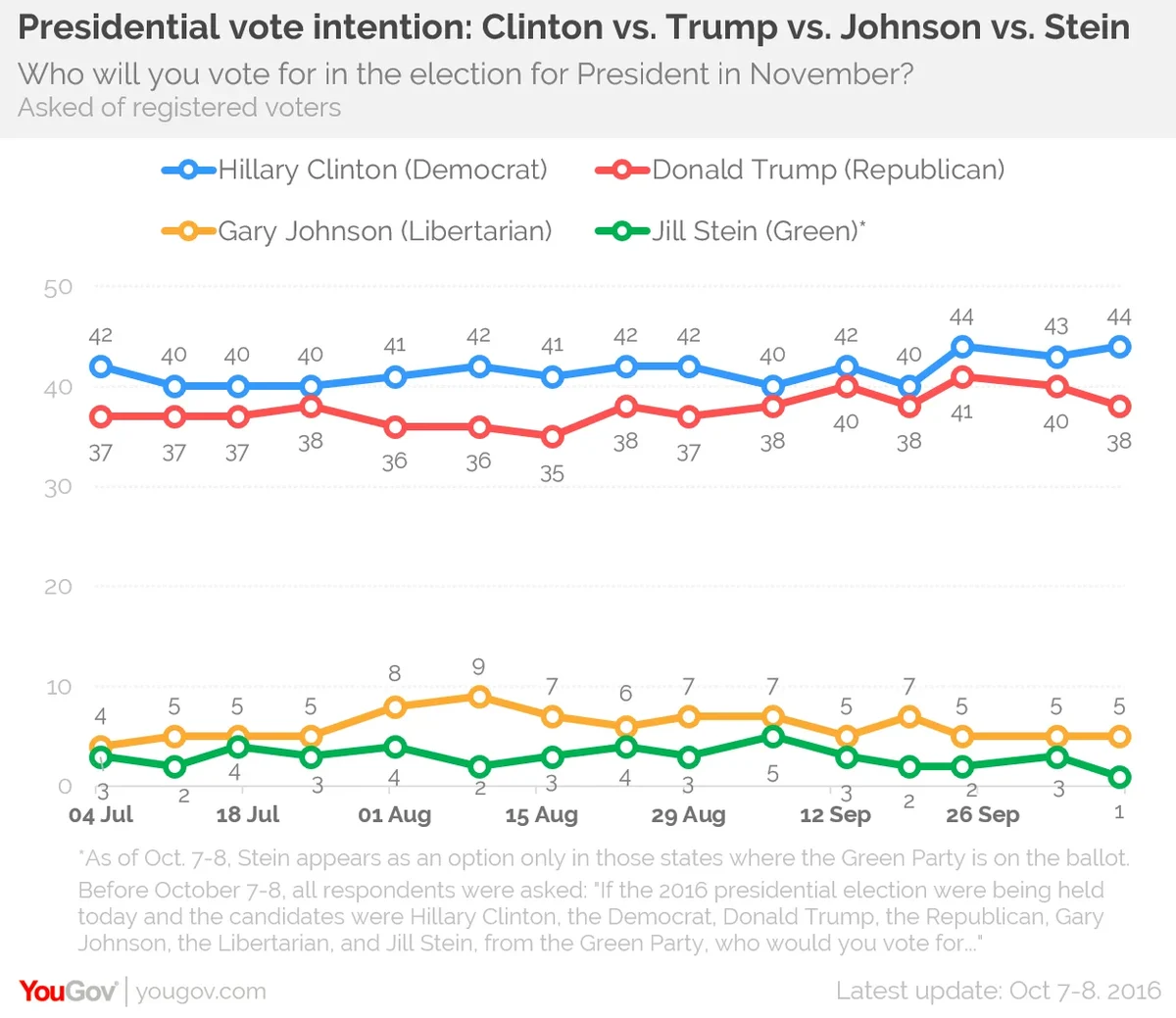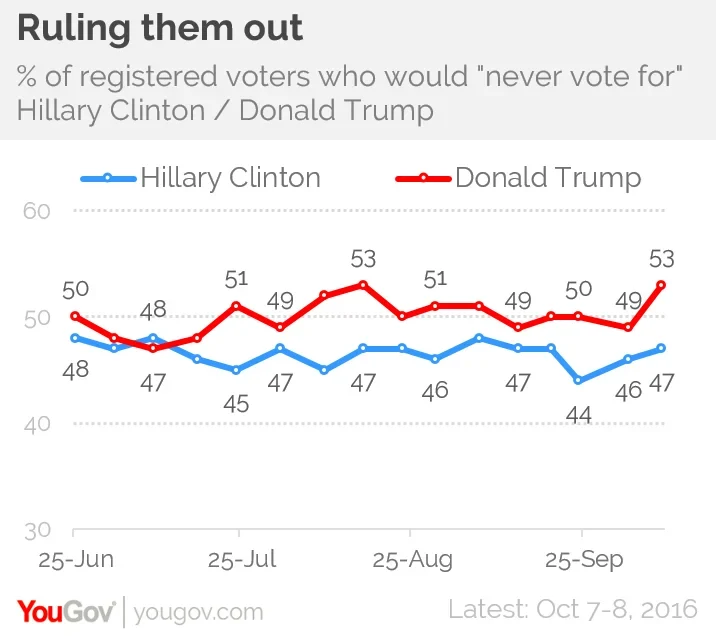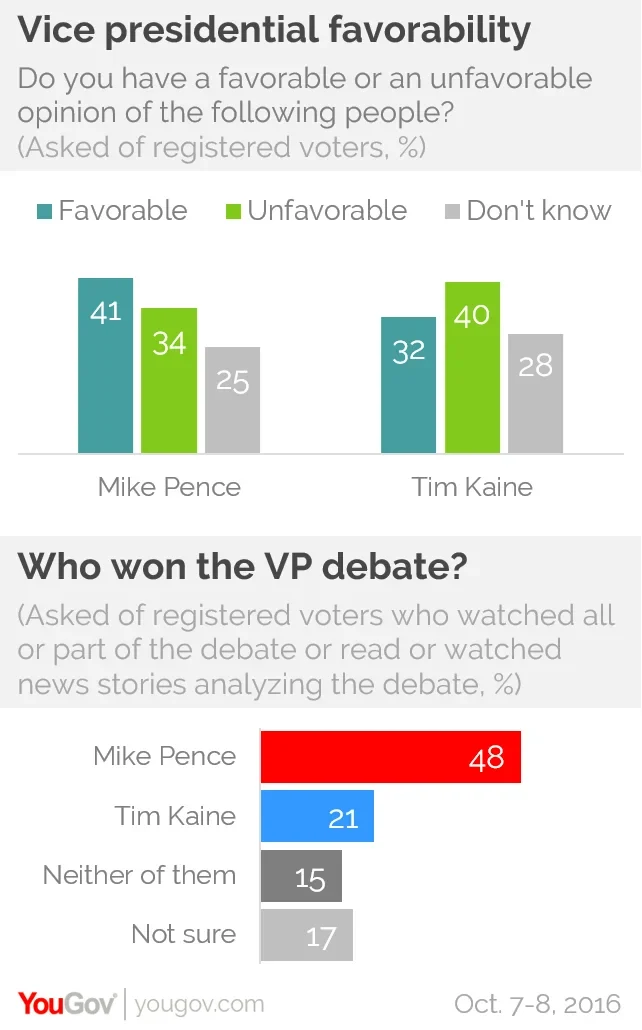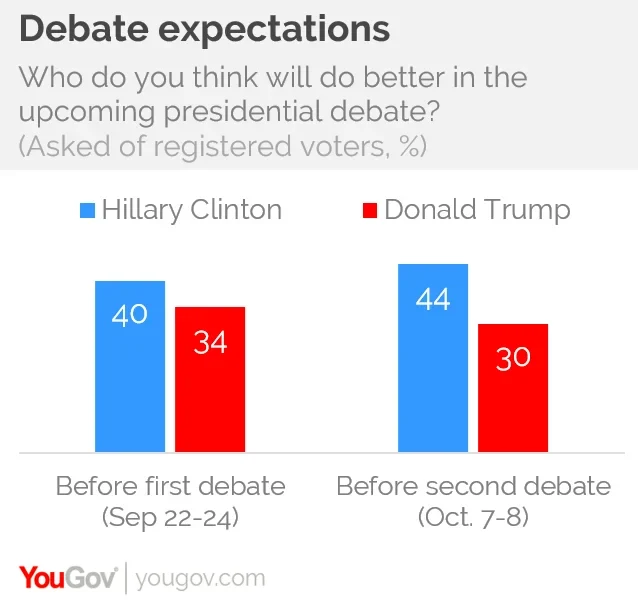The survey was conducted mostly after the Friday release of a 2005 video showing Trump making vulgar statements about women
The turmoil of the last few days in the race for the Presidency have given Democratic nominee Hillary Clinton her widest lead over Republican Donald Trump in two months. The new Economist/YouGov Poll was conducted mostly after the release of a 2005 video recording of Trump making vulgar statements about women and his behavior towards them and as a number of GOP leaders rejected those statements and a number of them rejecting Trump as well.

With a month to go before the election, there are multiple occasions that could move some voters again. Tonight’s second presidential debate is one of those occasions. But the weekend’s Trump revelations appear to have hurt the New York businessman. Clinton now has a six-point lead over Trump in the four-way contest. Much of that increase comes because of a drop in support for Trump, not necessarily because of big gains by Clinton. And there is a bit more tentativeness: among some groups (especially women and 65 and older the percentages who say they are undecided have doubled.
Clinton lead among women has expanded to 15 points this week, with 49% of women voters now saying they support Clinton, and just 34% in favor of Trump. Trump has also lost support with voters 65 and older. Last week 50% of senior citizens favored Trump, now 43% do. Clinton gained a little ground with older voters (her share of their support went from 42% to 45%), but the percentage who said they were not sure what they would do in November more than doubled – from 5% last week to 11% now. Women are also more likely to be undecided: one in ten women this week aren’t sure whom they will vote for.
What may be more damaging to Trump than the latest shift in preference is that more than half of voters this week are saying is that they would never vote for him. The percentage saying that varies from week to week, but has never been higher. 47% would never vote for Clinton, about the same percentages who have been saying this all along.

56% of women voters say they would never support Trump.
There is some other good news for Clinton. By two to one, the public sees her as candidate most likely to win in November. By two to one, her supporters claim they are voting for Clinton and not against Trump. Trump’s voters are almost as likely to say they are casting a ballot against Clinton as one for Trump.
Trump’s difficulties this week come in the wake of what was a successful debate by his running mate, Indiana Governor Mike Pence. Among registered voters, Pence is viewed favorably; while Democratic vice presidential nominee Senator Tim Kaine is not. Prior to last week’s debate, views of both candidates were relatively evenly divided.

And among those voters who watched or read about the Pence-Kaine debate, Pence was the clear winner – by more than two to one. 48% of registered voters who watched or read about the debate said Pence did better, while just 21% thought Kaine did. And while both men are seen as being qualified to serve, should that become necessary, more see Pence that way than view Kaine as qualified.
In fact, more voters see each of the vice presidential candidates as qualified to serve than view GOP standard bearer Trump that way.
Six in ten registered voters are looking forward to the last two presidential debates, and they are once again expecting Hillary Clinton to perform better than Trump. Expectations for Clinton are actually higher than they were for the first presidential debate. Before that debate, 40% of registered voters thought Clinton would do the better job in the debate, six percentage points higher than the percentage who thought Trump would. Today, that margin has doubled.

In the Economist/YouGov Poll conducted after that first debate, three times as many viewers thought Clinton had won as believed Trump had.









